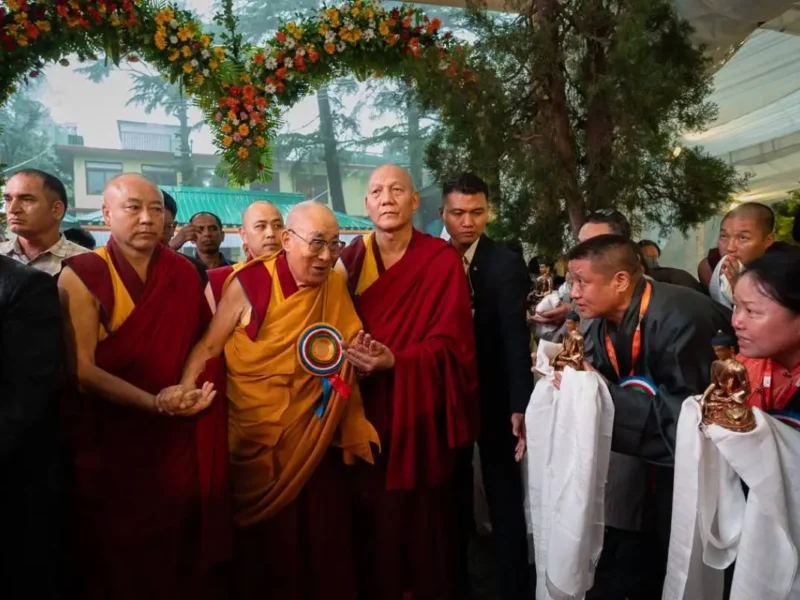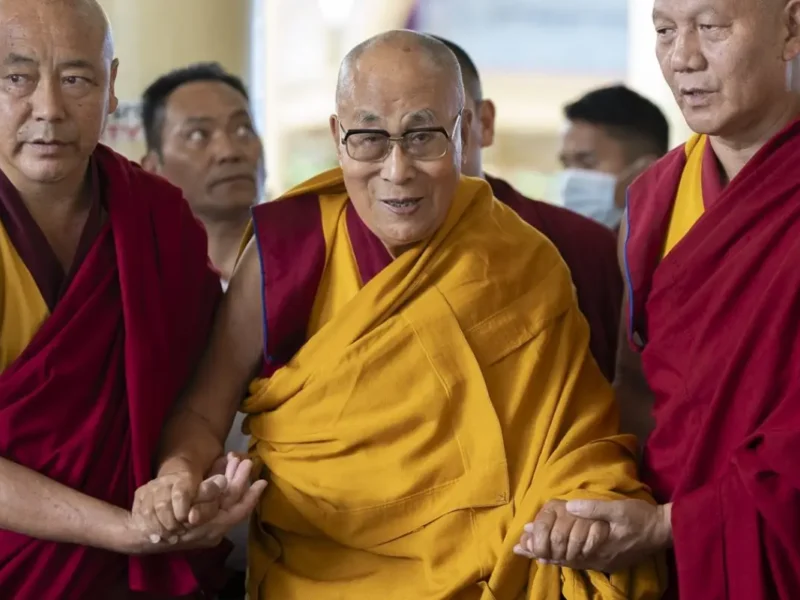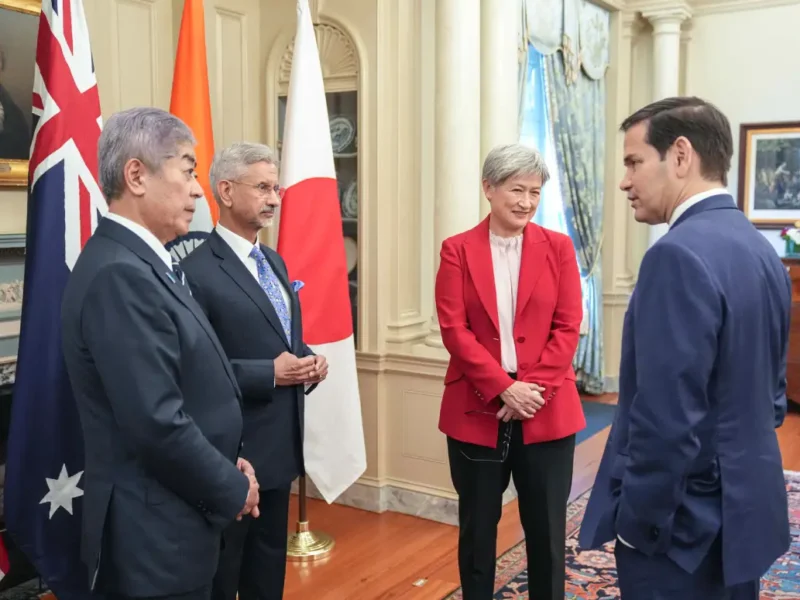
Biden: U.S. Will Share Additional 20 Million Vaccine Doses, Commitment Boosted to 80 Million
President Joe Biden, joined by Vice President Kamala Harris, gives an update on his administration’s COVID-19 response and vaccination program in the East Room of the White House on May 17, 2021 in Washington, DC. Biden announced that the U.S. will send 20 million doses of Pfizer, Moderna and Johnson & Johnson COVID-19 vaccines abroad on top of the 60 million AstraZeneca doses already planned for export, a move welcomed by Indian American Congressman Raja Krishnamoorthi. (Anna Moneymaker/Getty Images)
From News Dispatches
WASHINGTON — President Joe Biden said May 17 that the U.S. will share an additional 20 million doses of COVID-19 vaccines with the world in the coming six weeks as domestic demand for shots drops and global disparities in distribution have grown more evident, the Associated Press reported.
The doses will come from existing production of Pfizer, Moderna or Johnson & Johnson vaccine stocks, marking the first time that U.S.-controlled doses of vaccines authorized for use in the country will be shared overseas. It will boost the global vaccine sharing commitment from the U.S. to 80 million.
“We know America will never be fully safe until the pandemic that’s raging globally is under control,” Biden said at the White House.
The announcement comes on top of the Biden’s administration’s prior commitment to share about 60 million doses of the AstraZeneca vaccine, which is not yet authorized for use in the U.S., by the end of June. The AstraZeneca doses will be available to ship once they clear a safety review by the Food and Drug Administration.
Biden also tapped COVID-19 coordinator Jeff Zients to lead the administration’s efforts to share doses with the world.
“Our nation’s going to be the arsenal of vaccines for the rest of the world,” Biden said. He added that, compared to other countries like Russia and China that have sought to leverage their domestically produced doses, “we will not use our vaccines to secure favors from other countries.”
The Biden administration hasn’t yet said how the new commitment of vaccines
Biden’s announcement was welcomed by Indian American Congressman Raja Krishnamoorthi, reported business-standard.com.
“While I’m glad to see the White House committing to sharing an additional 20 million COVID-19 vaccine doses with the world by the end of next month, this is only one step of the many more we need to take to reduce the threat of new mutant strains emerging from outbreaks abroad and causing another deadly surge here at home,” said Krishnamoorthi, according to the report.
“The outbreaks we’re seeing in India and many other nations are a tragedy for all those facing them, and they’re a threat to those in other countries who’ve already been vaccinated because of the risk they pose of producing vaccine-resistant mutations,” he said.
In related news, the Hindustan Times reported that U.S. Surgeon General Vivek Murthy has warned of “misinformation” regarding India’s battle against Covid.
“Misinformation is a virus itself, and it harms people, and it sometimes compels them to take actions that puts put them and other people at risk,” Murthy said in a virtual outreach to Indian Americans on the dangers of misinformation as India battles its worst public health crisis in a century, the report quoted him as saying.
ANI added May 18: The Pfizer/BioNTech and Moderna coronavirus vaccines appear to protect against COVID variants B.1.617 and B.1.618, first identified in India, as researchers have reported in a new pre-print paper, which has not yet been peer-reviewed, CNN reported.
Based on lab experiments involving cell cultures, the B.1.617 and B.1.618 variants seem to be partially resistant to the antibodies elicited by vaccination, according to the pre-print paper posted to the online server biorxiv.org on May 16. “Thus, there is a good reason to believe that vaccinated individuals will remain protected against the B.1.617 and B.1.618 variants,” the researchers from New York University wrote in their paper. But more research is needed to determine just how effective the Pfizer/BioNTech and Moderna vaccines are against those variants in the real world.
(With AP reports)




